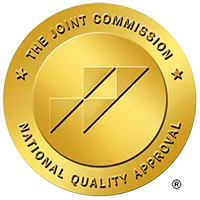Understanding Relapse in Addiction Recovery
What Is Relapse?
A relapse is a process beginning with emotional and mental struggles, which lead to using the substance you were addicted to again. The first time you return to the substance is a “lapse,” and subsequent uses are considered relapses.
Common Relapse Triggers
There are low-risk and high-risk situations that can trigger a relapse, as well as lifestyle factors that can contribute to use. Stress, temperament, problems with instant gratification, lack of self-confidence, setting expectations of recovery, mental health disorders, anger, loneliness, boredom, fatigue, lack of or inconsistency with healthy coping mechanisms, cravings, lack of motivation, and lack of support can all contribute to relapsing.
The Stages of Relapse
There are emotional, mental, and physical relapses that occur. An emotional relapse happens when your emotions and behaviors create a foundation for relapsing either without your knowledge or in your denial. A mental relapse happens when you have an internal struggle between wanting to relapse and wanting to stay sober. Physical relapses are the final stage when you begin using the substance again.
Recognizing Early Warning Signs of Relapse
Signs of an emotional relapse include isolation, not attending or actively participating in meetings, focusing on others’ problems, poor sleep, and poor eating habits. During a mental relapse, you may have cravings, remember triggers in your past, exaggerate the positive aspects of use, lie, bargain, and seek ways and plan to relapse.
Relapse Prevention Strategies at Red Rock Recovery
Individualized Relapse Prevention Plans
Every client is unique, and at Red Rock Recovery Center, we create individualized treatment and relapse prevention plans to accommodate your needs. Growth and healing become more attainable when your journey is specific to you.
Developing Healthy Coping Mechanisms
Red Rock Recovery Center helps you discover and practice healthy coping mechanisms that feel right for you and that can easily be incorporated into your day-to-day life post-treatment. These coping mechanisms, such as life skills development, mindfulness, and stress management, help you grow on physical, mental, emotional, and spiritual levels.
Building a Strong Support Network
From the first stage of detox to lifelong support, you have a community of staff and peers who are there for you. Together, we can heal and find a new purpose in life to keep you on track with recovery at any point in your life.
Key Components of Relapse Prevention
Identifying and Avoiding High-Risk Situations
High-risk situations may be lifestyle factors (i.e., stress levels) or cognitive factors (i.e., denial or immediate gratification) that greatly impact your substance use and relapse. These differ from client to client, which is why having the right resources to effectively determine, acknowledge, and cope with your unique needs is essential in relapse prevention.
Managing Stress and Anxiety
Stress and anxiety are considered high-risk situations that can lead to drug use. Managing stress and anxiety can be done using techniques like breath control, journaling, engaging with the outdoors, yoga, meditation, talk therapy, and connecting with your community.
Developing Healthy Coping Mechanisms
Healthy coping mechanisms discovered and practiced at Red Rock Recovery Center are meant to follow you into your post-treatment life. These mechanisms aim to continue healing your mental, physical, emotional, and spiritual being to promote relapse prevention and self-reliance.
Mindfulness and Meditation Practices
Holistic therapies at Red Rock Recovery Center include meditation and mindfulness. This practice helps you ground yourself in the present moment, discover inner peace and balance, and strengthen your mind-body connection.
Developing a Personal Relapse Prevention Plan
Individualized treatment plans are created at Red Rock Recovery Center for each client, including a personal relapse prevention plan. Post-treatment life, just like addiction recovery, is different for everyone. Your plan will include groups, resources, therapies, and holistic practices that make sense for you, your needs, and your journey.
The Role of Continued Care and Aftercare Support
Ongoing Therapy and Counseling
Continuing care post-treatment is valued at Red Rock Recovery Center. This includes ongoing therapy and counseling, both in individual and group sessions. In individual therapy, you work with a therapist to set goals, heal underlying causes of addiction, and develop healthy coping mechanisms in a setting that is completely surrounded around you. Group therapy gives you a chance to connect with others, strengthen your support network, and motivate one another, no matter where you are in recovery.
Peer Support and Mentorship
Red Rock Recovery Center emphasizes the importance of community, which includes a group of peers in treatment, staff members, and our alumni program. Community, connection, and purpose are created by working together, sharing experiences, and offering support every step of the way. We also offer an Ambassador Program to alumni to help you strengthen your leadership skills by mentoring new clients, reminding you that you can make a difference in your life and others.
Finding Hope and Healing at Red Rock Recovery
We are here for you at Red Rock Recovery Center to help you find a new purpose in life. Our support is there every step of the way, from the moment you step into our facilities and throughout the rest of your lifelong journey. Together, we learn how to heal, create a healthy life, and promote recovery with every step we take.
Here at Red Rock Recovery Center, we create individualized relapse prevention plans that meet your specific needs post-treatment with holistic practices, healthy coping mechanisms, continuous counseling, and peer support. Call us today at (855) 218-7588 to learn more about relapse prevention and our services.




